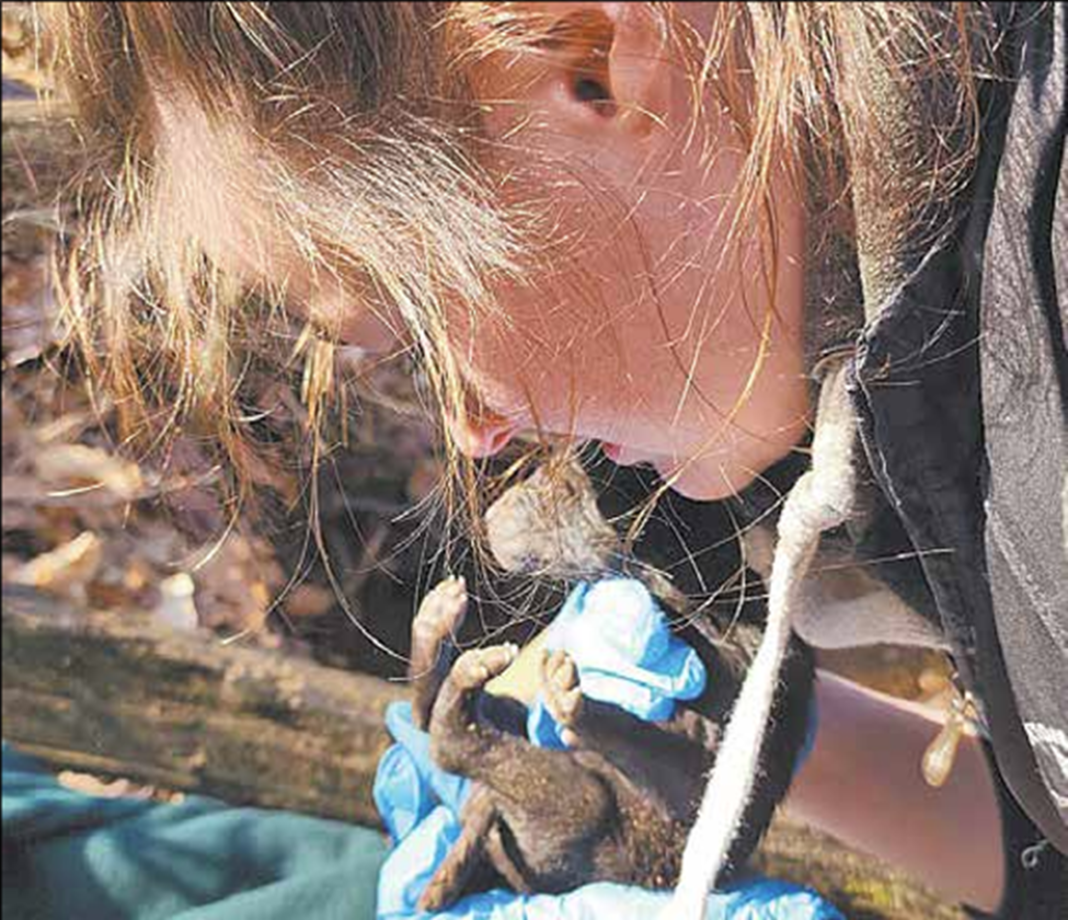Quest, Haliburton Forest Wolf Centre’s new breeding female, gave birth to two pups May 3, just in time for Mother’s Day.
Marena Wigmore, wolf centre and experiences manager, said the new arrivals, both black furred, one male, and one female, should make an already busy summer even more hectic.
“Any time we have pups, we expect it’s going to be a busy one. Summer always is, but people love the little ones,” Wigmore said.
There has not been a litter since 2022, so “it’s been a while,” Wigmore added.
“It’s always really exciting for us. There’s always the bigger picture of the pack as a whole as well, not having pups for a couple of years isn’t necessarily a bad thing for the pack but, who doesn’t love puppies?”
Luna, the former breeding female, passed away last June. She was 13. The centre had not expected her to have pups in 2023 or 2024, due to her age and for her own wellbeing. After she passed, it was expected another female would take on the breeding role. During mating season, which runs until the end of February, they saw Uriel and Quest “doing successfully what they needed to do so pups could happen,” Wigmore said.
And then they waited.
Wigmore said Quest did not show visible signs of being pregnant, such as a pregnancy belly, or swollen teats through her winter coat. She noted a pup weighs about half a pound at birth, when wolves can eat 20kg of food at once.
So, staff observe, looking for things such as the mom being absent when they would normally expect her to be with the pack. On May 2, Quest returned covered in dirt and disappeared fairly quickly.
“That tells us she’s been in the den, there is something for her to go back to, that’s a pretty sure sign to us that she’s done birthing, she’s come out, she’s come up for air, she’s had a bit of a rest.”
The next day, centre staff went looking for the den. Because Quest is a first-time mom, they weren’t sure where it would be. They started by looking at Luna’s previous den, “and fortunately, she had chosen to use that one so it was very quick and easy for us.
“As soon as we rolled up to the den site, we could tell dirt had been recently dug a little and we started hearing squeaks right away. These two pups are some of the most vocal that I’ve come across at den check.” She added while deworming, the female pup would not keep her head still. She said their vocalness is a sign, “they’re strong, they’re healthy.”
She said the pups were assessed, medicated and returned to the den swiftly. In total, staff spent only 15 minutes in the enclosure. “This keeps the stress on mom to a minimum and allows her to quickly return back to her babies. While these are new pups, there is never a guarantee of survival. But with a smaller litter, we are cautiously optimistic.”
Wigmore added Quest doing “everything to a T” as a new mom is both “satisfying and relieving.”
Once centre staff see the pups in the observation area for the first time, expected in mid to late-June at six to eight weeks, ensuring they have survived, the centre will launch its naming competition, which lasts six months.
“This year would be letter Z,” Wigmore said.





